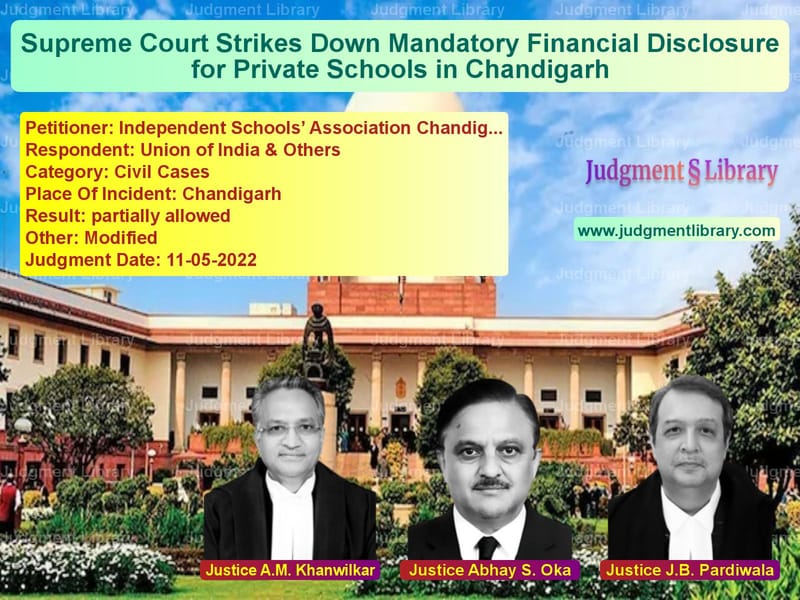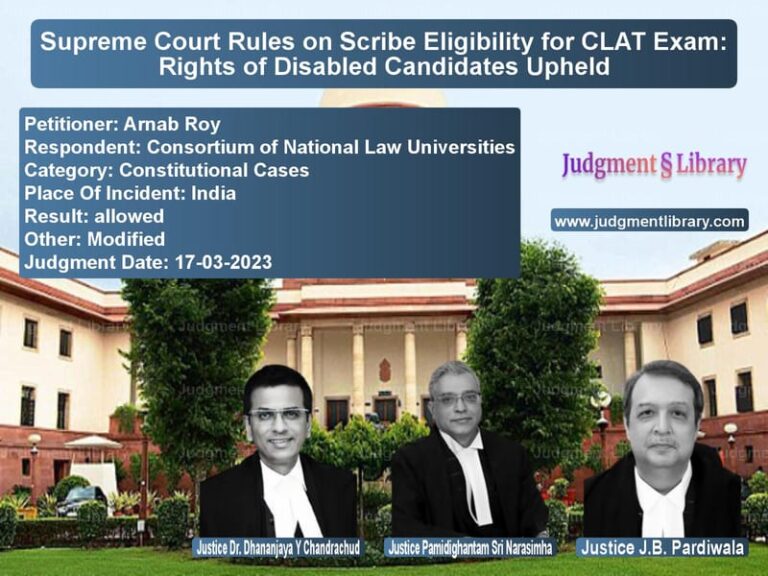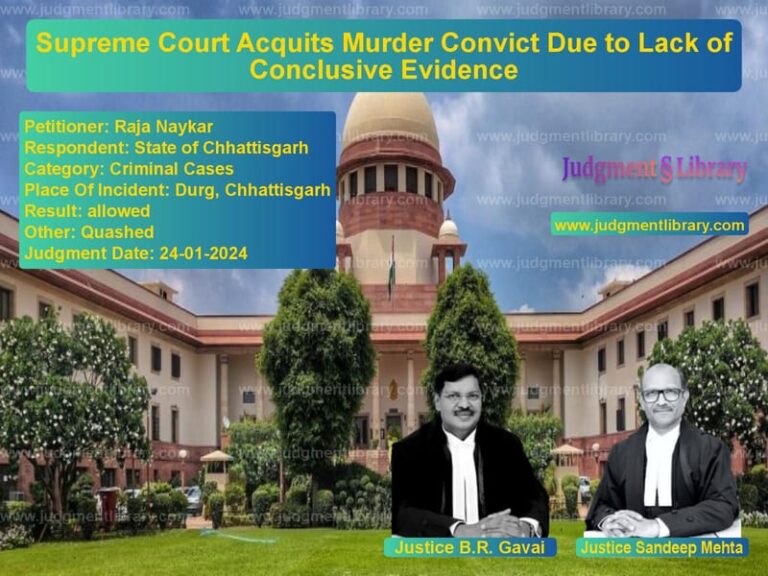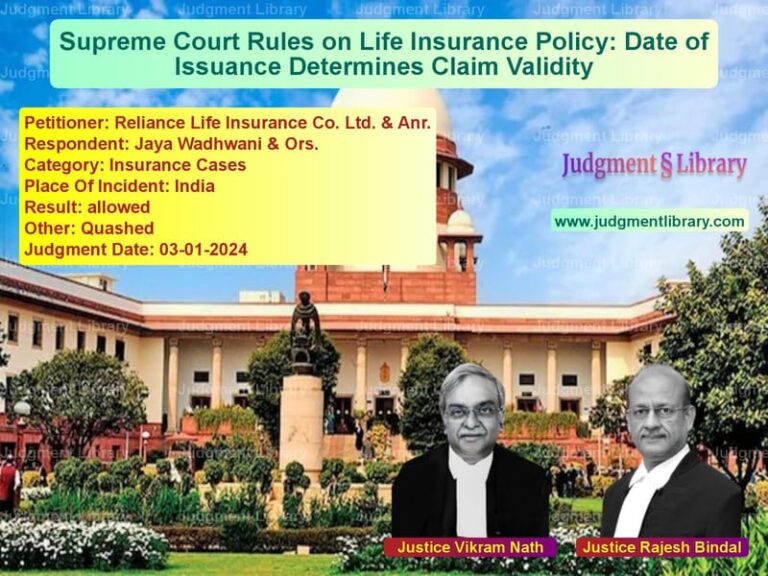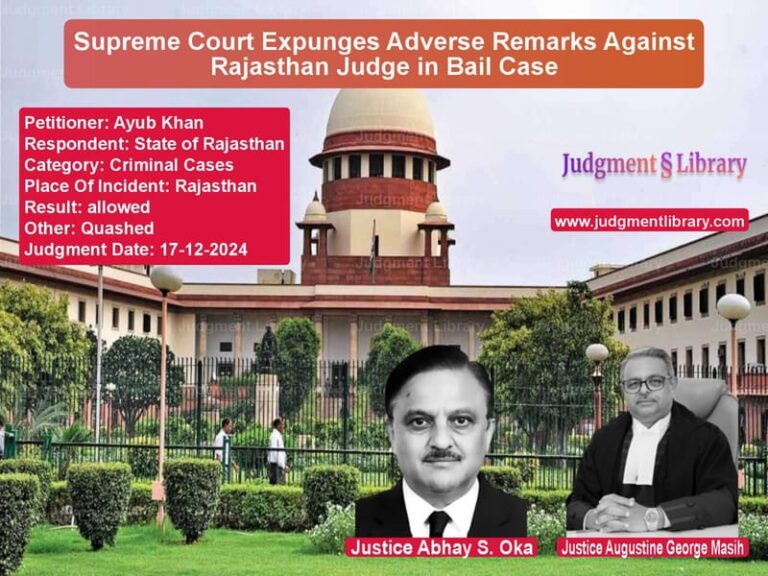Supreme Court Strikes Down Mandatory Financial Disclosure for Private Schools in Chandigarh
The case of Independent Schools’ Association Chandigarh vs. Union of India centered on a legal challenge by private unaided schools against a government notification requiring them to disclose financial details on their websites. The Supreme Court ruled that this mandate was unconstitutional and exceeded the government’s authority.
Background of the Case
The dispute arose from a notification issued on April 13, 2018, under the Punjab Regulation of Fees of Unaided Educational Institutions Act, 2016, which was extended to Chandigarh under Section 87 of the Punjab Reorganization Act, 1966. The notification mandated private unaided schools to:
- Upload income, expenditure account, and balance sheet on their websites.
- Not charge any additional costs from parents apart from the disclosed fees.
- Disclose the complete fee structure at the beginning of the academic year.
- Not increase fees during the academic session.
The Independent Schools’ Association Chandigarh and other private schools challenged this notification, arguing that it violated their rights and imposed undue regulatory burdens.
Key Legal Issues
- Whether the government had the authority to mandate financial disclosure by private unaided schools.
- Whether the fee regulation was constitutional and in line with the original 2016 Punjab Act.
- Whether the penalties imposed for non-compliance were excessive.
Arguments Presented
Petitioners’ Arguments (Independent Schools’ Association Chandigarh)
- The requirement to publicly disclose income and expenditure violated the right to privacy and financial autonomy of private educational institutions.
- The notification exceeded the scope of Section 87 of the Punjab Reorganization Act, which only allows peripheral modifications to state laws when extending them to Union Territories.
- The Punjab Regulation of Fees Act, 2016, which was extended to Chandigarh, contained no such provision for mandatory financial disclosure.
- Private schools operate without government funding and should have the right to manage their financial affairs independently.
Respondents’ Arguments (Union of India & Chandigarh Administration)
- The financial disclosure mandate ensured transparency and prevented profiteering by private schools.
- Parents have a right to know how their fees are utilized, and the regulation aimed to protect students from arbitrary fee hikes.
- The notification was in line with public interest and similar fee regulation laws in other states.
- Stricter regulations were necessary due to complaints from parents about non-transparent fee structures.
Supreme Court’s Observations
The Supreme Court analyzed whether the Chandigarh Administration had the authority to impose the additional conditions not found in the original Punjab law. The key observations included:
- The notification introduced a substantive change: The Court held that requiring schools to disclose financial details was not a minor modification but a major policy shift beyond the government’s powers.
- Financial autonomy of private schools must be respected: The Court noted that unaided schools do not receive public funds and should not be subject to the same financial disclosure norms as government schools.
- State legislatures must pass such laws: If the government wished to impose financial disclosure rules, it should be done through proper legislative amendments rather than executive orders.
- Fee transparency remains important: The Court upheld the requirement that schools disclose the full fee structure at the start of the academic year but struck down the demand for publishing financial statements.
Key Excerpts from the Judgment
The Supreme Court ruled:
“The change introduced vide the impugned Government Order/Notification is not a peripheral or insubstantial change. Hence, it is clearly outside the scope of the authority bestowed on the competent authority in terms of Section 87 of the 1966 Act.”
The Court further observed:
“It is a substantive matter… Had it been so incorporated in the parent Act, it would have been open to challenge on constitutional grounds. But it cannot be imposed through an executive notification.”
Final Verdict
The Supreme Court issued the following directives:
- The requirement for private schools to upload income, expenditure, and balance sheets was struck down as unconstitutional.
- The prohibition on charging additional costs from parents and the requirement to disclose fees at the beginning of the academic year were upheld.
- The increased penalties for non-compliance were declared unconstitutional as they altered the original provisions of the Punjab Act.
- The Union Territory of Chandigarh was directed to regulate fee structures within the framework of the original law and not through excessive modifications.
Outcome: This judgment reinforced the principle that governments cannot impose substantive new regulations through executive orders and that financial autonomy of private schools must be protected.
Petitioner Name: Independent Schools’ Association Chandigarh.Respondent Name: Union of India & Others.Judgment By: Justice A.M. Khanwilkar, Justice Abhay S. Oka, Justice J.B. Pardiwala.Place Of Incident: Chandigarh.Judgment Date: 11-05-2022.
Don’t miss out on the full details! Download the complete judgment in PDF format below and gain valuable insights instantly!
Download Judgment: independent-schools’-vs-union-of-india-&-oth-supreme-court-of-india-judgment-dated-11-05-2022.pdf
Directly Download Judgment: Directly download this Judgment
See all petitions in Education Related Cases
See all petitions in Consumer Rights
See all petitions in Judgment by A M Khanwilkar
See all petitions in Judgment by Abhay S. Oka
See all petitions in Judgment by J.B. Pardiwala
See all petitions in partially allowed
See all petitions in Modified
See all petitions in supreme court of India judgments May 2022
See all petitions in 2022 judgments
See all posts in Civil Cases Category
See all allowed petitions in Civil Cases Category
See all Dismissed petitions in Civil Cases Category
See all partially allowed petitions in Civil Cases Category

